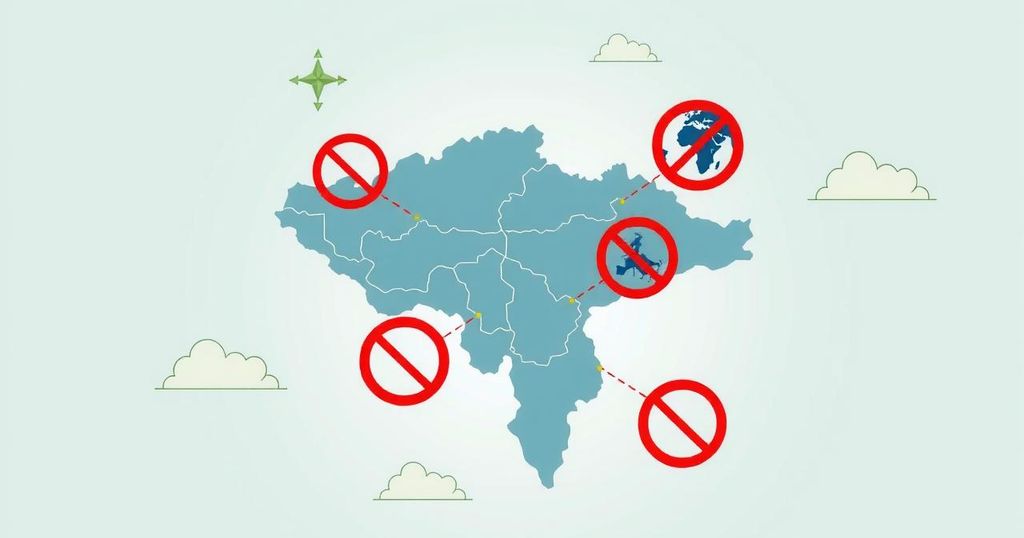The U.S. has imposed a travel ban on Bhutan alongside other conflict-ridden nations, citing visa violations and national security concerns. Approximately 37% of Bhutanese visitors violated visa regulations, prompting the classified Red List status. Consequently, Bhutanese citizens will face stricter scrutiny in obtaining visas, creating challenges for students and professionals. Bhutan’s Ministry of Foreign Affairs has requested a reconsideration of the decision, emphasizing the impact on diplomatic relations.
In a recent development, the United States, under the Trump administration, has instituted travel bans affecting certain countries. This decision highlights a stringent approach towards immigration, with a list of 43 nations categorized into Red, Orange, and Yellow classifications. Notably, the Red List includes nations facing severe restrictions, such as Afghanistan and Syria, due to instability or strained diplomatic relations. Surprisingly, Bhutan has also been placed on this list, a country often recognized for its high happiness index.
The primary rationale for Bhutan’s classification arises from a significant number of Bhutanese nationals violating U.S. visa regulations and overstaying their permitted durations. This situation has prompted concerns regarding national security. Compounding this issue is an increasing trend of Bhutanese individuals entering the U.S. through unlawful means. According to statistics from the U.S. Department of Homeland Security, last year, a staggering 37% of Bhutanese visitors were reported to have breached visa rules.
As a consequence of being placed on the Red List, Bhutanese citizens will now encounter stricter scrutiny prior to obtaining U.S. visas, with many applications potentially facing rejection without justification. This situation poses considerable challenges for Bhutanese individuals, especially students and professionals who travel to the U.S. for educational and career pursuits.
Additionally, this decision may affect the historically positive diplomatic relations between Bhutan and the United States. In light of these developments, Bhutan’s Ministry of Foreign Affairs has officially appealed to the U.S. government for reconsideration of its stance. The inclusion of Bhutan on the Red List, alongside countries embroiled in conflict such as Somalia and Libya, has raised eyebrows and invoked questions regarding the criteria for such classification.
In conclusion, the U.S. travel ban encompassing Bhutan reflects broader immigration reform policies derived from concerns of visa violations and national security. Despite Bhutan’s typically stable status, the inclusion of its citizens on the Red List underscores the complexity of international relations and immigration control. The implications of this ban may significantly influence Bhutanese nationals’ access to the U.S., along with diplomatic ties between the two nations.
Original Source: www.india.com






